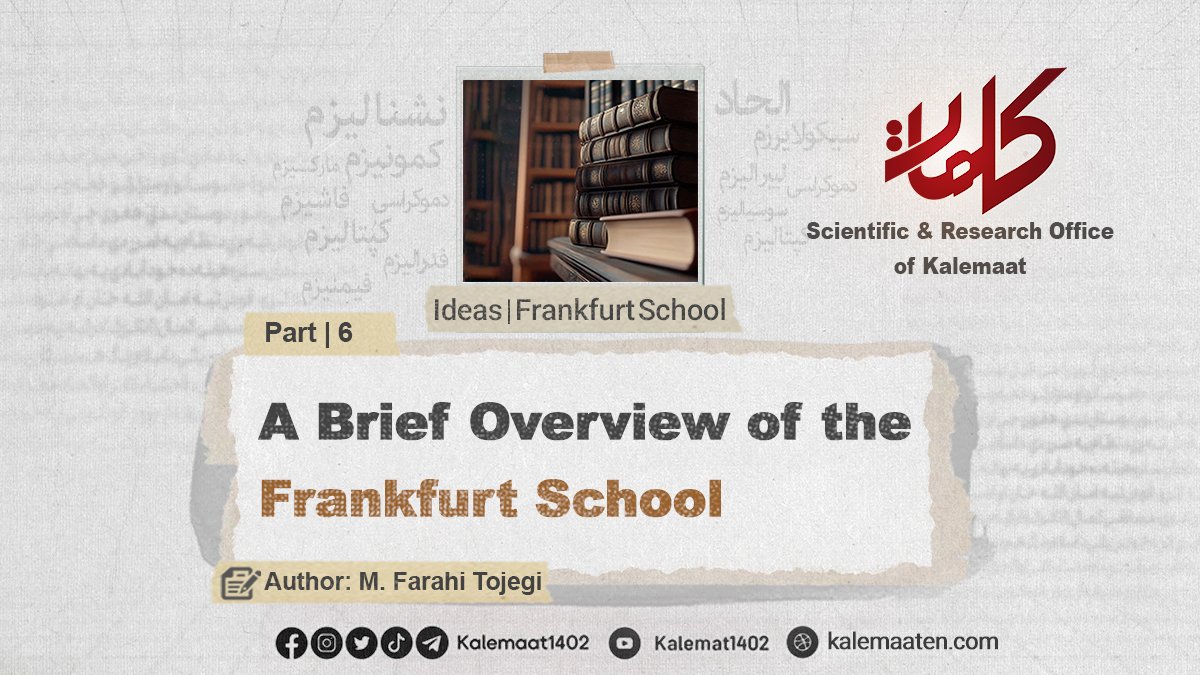Author: M. Farahi Tojegi
A Brief Overview of the Frankfurt School (Part 6)
Principles of the Frankfurt School
The members of the Frankfurt School of Critical Theory generally accepted certain core principles that were to serve as the main foundations governing their research activities and placed at the center of the School’s program. The most important of these were:
-
Capitalism is undergoing a series of acute crises. What is the best way to understand these crises correctly, and what is the relationship between politics and economics?
-
Social relations are subject to serious transformations. In which direction are these changes heading, and what effect do they have on the individual?
-
Authoritarianism and the expansion of bureaucratic institutions apparently represent the dominant order of the day. How can these phenomena be understood and analyzed?
-
The struggles of labor movements in Europe did not culminate in a unified struggle of all the world’s workers. What were the factors and obstacles to this?
-
Various spheres of culture have been manipulated, subjected to close supervision, and turned into instruments of control. Is a new kind of ideology emerging? If so, what is its nature, and what effects does it have on people’s everyday lives?
-
How did totalitarianism, in the form of Nazism and Fascism, manage to dominate much of Central and Southern Europe?
-
Given the failure of Marxism in Russia and Western Europe, can we still hope for the existence of social agents capable of bringing about progressive change? Or has Marxism become nothing more than a rigid orthodoxy?
It should be noted that the theorists of this School initially grounded their ideas in Marxist thought and were fundamentally influenced by the theories and writings of Marx (though their intellectual debt to Hegel must not be overlooked). However, in the last fifty years, they have moved considerably away from their original principles. Initially, their foundations were capitalism and liberal democracy; but after the early years of the School, no single theory existed that all its members agreed upon.
The aim of the Frankfurt School theorists was to bring about political, economic, and cultural transformations in the capitalist societies of their time. They sought, through their works and by exposing the underlying contradictions of class societies, to create positive social change.
As we have mentioned, the Frankfurt School’s approach was critical. Learning from orthodox Marxism, it sought to place greater emphasis on the critical dimension of issues. In opposition to instrumental rationality, it defended critical rationality. Broadly speaking, from the perspective of the Frankfurt Critical School, the rationality that once played the role of enlightenment has, in the modern world, turned into a kind of instrumental rationality. This has gone hand in hand with the increasing loss of individuality in the process of industrialization of human society—within a world structured by organizational and administrative processes that have become, or are becoming, tools for scientific–technical domination over nature.
Members of the Frankfurt School
In this section, we will introduce four of the most well-known members of the Frankfurt School:
-
Max Horkheimer



